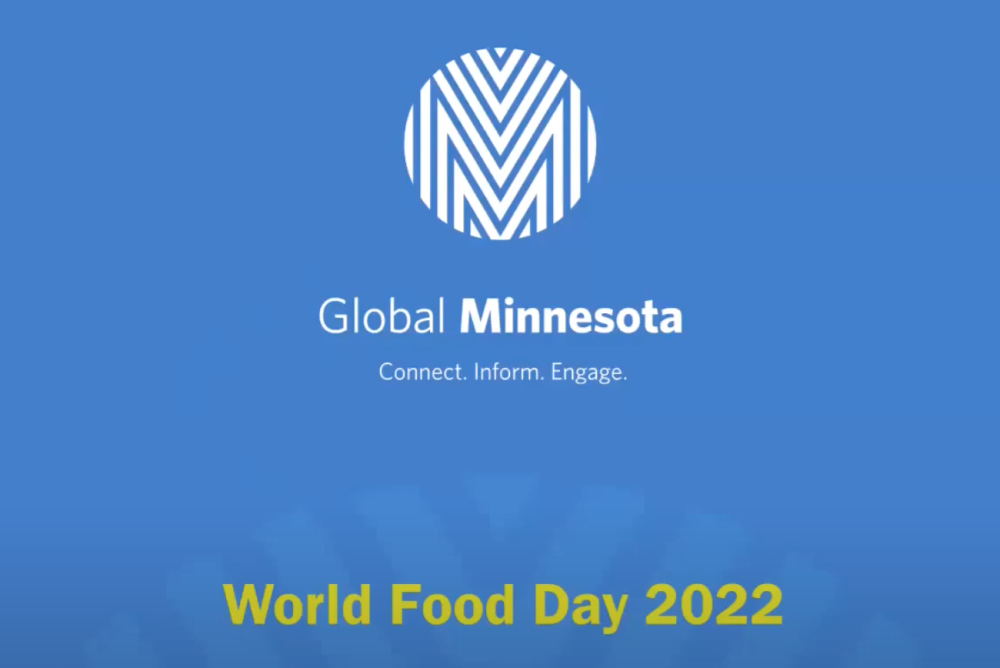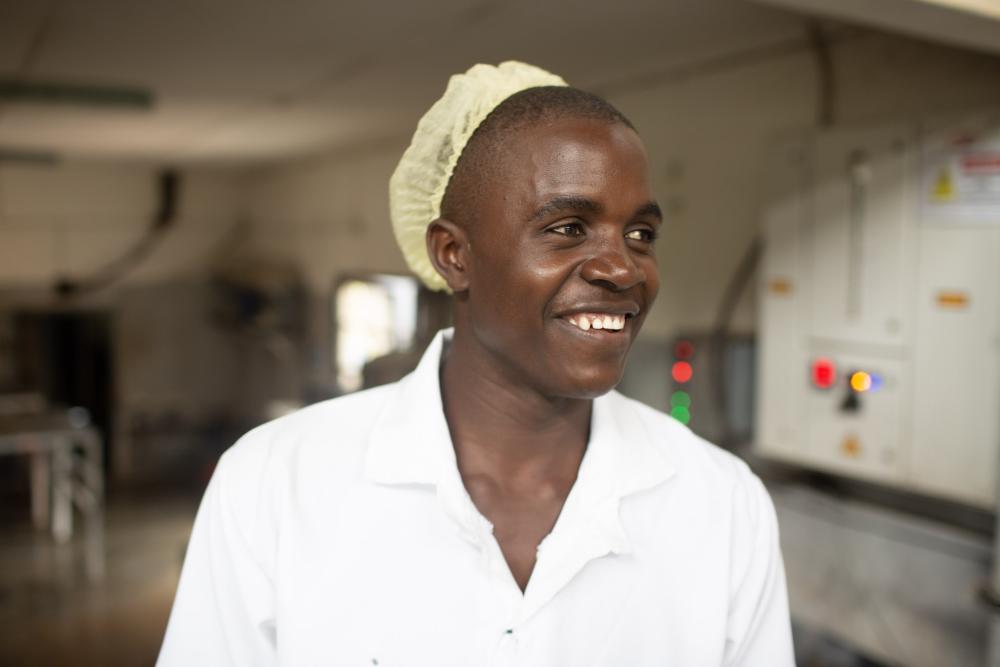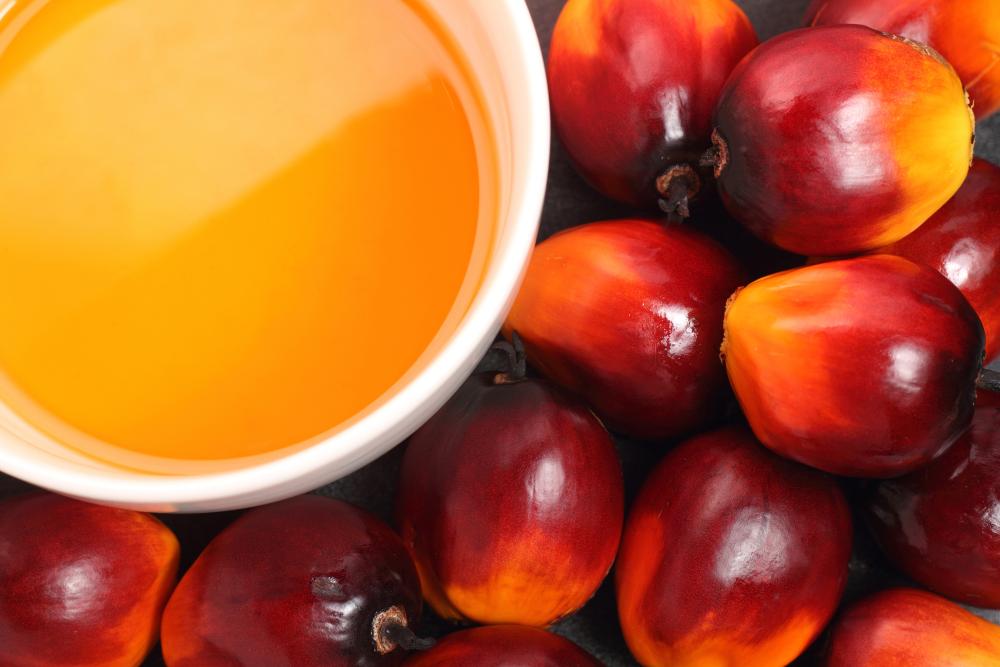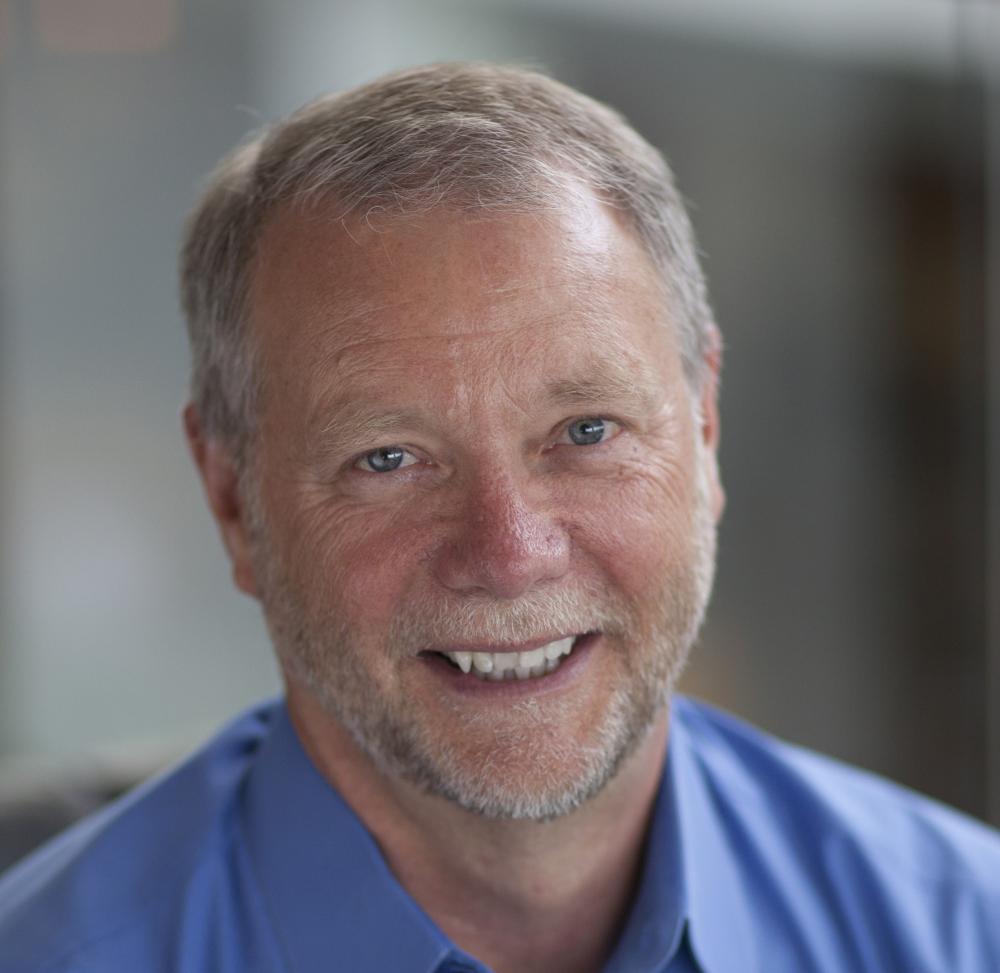
Jeff Dykstra Joins Global Minnesota for World Food Day Discussion with Cargill and General Mills
Last week, Jeff Dykstra, Kojo Amoo-Gottfried of Cargill, and Purbita Ray of General Mills joined Global Minnesota for a panel discussion on food security. They shared how PFS clients have been seriously impacted by supply chain challenges, inflation, and the devastating invasion of Ukraine, and how PFS helps them mitigate those shocks. "The ripple effects of fuel prices or being able to import the raw materials you need, whether that be packaging or food materials like wheat that come from regions like Ukraine, we're seeing hit these companies hard and ultimately that means higher-priced food for the people who can least afford it," said Jeff.
Click HERE to learn more about how Minnesota food giants Cargill and General Mills are helping strengthen the African food system through their partnership with Partners in Food Solutions.

Ensuring Safe Cocoa For All
Along the west coast of Africa, where more than 2 million smallholder farmers are responsible for producing 70 percent of the world’s cocoa supply, cocoa farming is a way of life. Despite being one of the world’s top producers of cocoa, most of the value is created after the cocoa beans reach the Global North for additional processing. To supply consumers with safe and delicious cocoa, and add value on the continent of Africa, Ivorian entrepreneur Olga Yenou launched Tafissa, or “to lick your fingers” in the Baoulé language, a cocoa processing company based in Côte d’Ivôire.
“The smile of a child or the satisfaction of an older person after consuming our chocolate is priceless in our eyes,” said Olga. “Our vision is to see Côte d’Ivoire become the leading cocoa processor and consumer.” In order to achieve their goal of sharing their chocolate with everyone, Olga reached out to Partners in Food Solutions and their network of expert volunteers for support in improving their food safety systems. “HACCP training is very important to us because it ensures that Tafissa chocolate is manufactured safely and our customers can feel good about purchasing from us. Partnering with PFS and its volunteers enabled us to put together a program that was just right for us.”
For several months, a team of project volunteers from Cargill, Hershey, Ardent Mills, and General Mills worked together to prepare Tafissa for future HACCP audits, including training their operators. “The whole project was very pleasant,” said Olga. “We learned a lot about different hazard assessment methods and our need to make some equipment purchases such as metal detectors. What we liked most was when the volunteers shared their various food safety experiences and the fellowship we had throughout the project.”
Tafissa’s journey to achieving its food safety goals continues. Tafissa is currently looking at certain equipment investments, guided by volunteer recommendations, and is in the process of making improvements to its processing systems to prepare for a future HACCP audit.

Striving for Better Food Safety
With its population set to double by 2050, Africa is the fastest-growing continent in the world and is on track to hold more than 25% of the world’s total population. As the continent continues to grow and industrialize, ensuring food safety has never been more important. Africa currently suffers from the world’s highest per capita rate of food-borne illness, resulting in 91 million acute illnesses and more than one hundred thousand deaths each year. To ensure safe food for communities across Africa, food processing companies are implementing advanced food safety measures such as Good Manufacturing Practices (GMP), Hazard Analysis and Critical Control Points (HACCP) and ISO 22000 food safety management systems.
One company that recently underwent this process was PFS client Rabboni Group in Uganda. Rabboni Group is a maize milling company located in Mukono District, Uganda. They’re eager to grow and supply local and global communities with healthy and safe products. However, the company lacked food safety management prerequisites that are required for any food processing company intending to access bigger markets. The
company chose to work with Partners in Food Solutions and its expert volunteer network for support.
Helping Rabboni Group to improve their food safety was Cargill Food Safety, Quality and Regulation Director Jayd Kittelson. With more than 17 years of industry experience, Jayd was the perfect person to help Rabboni Group reach its goals. “Throughout my career, I’ve gained a lot of exposure to best practices in the food safety space,” said Jayd. “Projects like this allow me to share my food processing knowledge with others who need it, as well as learn myself.”
For several months, Jayd and the project team worked together with Rabboni Group to understand their old processing systems, review GMP pre-requisites, and develop food safety program templates and manuals that would guide the company toward achieving additional food safety certifications. Since the project closed earlier this year, company operations have greatly improved, according to Wabulembo Fazil, a quality controller at Rabboni Group. “We started with personal hygiene and sanitation improvements, and have continued to upgrade the maintenanc of the site and structures guided by the GMP documentation created by the PFS volunteers. The pest control program has provided our company with a lot of savings.”
Rabboni Group now has its sights set on achieving additional food safety certifications including HACCP and ISO 22000, which Jayd and the volunteer team have already agreed to support. “I have worked on many PFS projects in the past and I continue to be impressed with the talent within the food safety and quality space in Africa,” said Jayd. “I keep volunteering because I am inspired by the entrepreneurial spirit of PFS clients and their passion for improvement.”

Building Resilience in Emerging Markets
Palm oil is a staple ingredient used across Rwanda and Africa, serving as an essential ingredient in popular dishes like Nigerian jolif rice and Ivorian sticky alloco plantains. Africa consumes significantly more palm oil than it produces, importing nearly 8 million tons of palm oil in 2020 to meet demand. What was once one of the cheaper cooking oils, is now rivaling other oils like sunflower and soy with prices continuing to rise due to food system shocks like supply chain challenges and the Russia-Ukraine conflict. This volatility in availability and price puts a spotlight on the challenges of depending on imported cooking oil and emphasizes the need to increase Africa’s own production capacity.
Cooperative Le Palmier based in Kigali, Rwanda is helping ensure African consumers have access to affordable and safe palm oil. Established in 2015, Cooperative Le Palmier produces refined palm oil and sells it to supermarkets in the city as well as local rural markets. “In order to meet the growing demand for cooking oil across Africa, we needed assistance in improving our operations and the safety of our products,” said Mr. Rumiya Kamari, managing director of Cooperative Le Palmier. “Partnering with PFS gave us access to the right experts to do that.”
Yenny Lizarazo, a food safety and quality supervisor, has been working at Cargill for five years and is responsible for ensuring that products that leave the plants meet the food safety standards required by its customers. “My main motivation for volunteering with PFS is to gain an experience that allows me to do something different from my daily work and help others,” said Yenny. “Working with Cooperative Le Palmier gave me the opportunity to learn about oil production. And although the regulations are similar, there were some differences so I had to learn about their processes specifically, which was a fun learning experience for me.”
By working together, Yenny and Cooperative Le Palmier have been able to put together the necessary documentation needed to do fortification of Cooperative Le Palmier’s palm oil and have improved its operations and the safety of its product. “As most of our staff are not skilled enough in GMP and quality control, Yenny has been a great resource with her expertise and experience in developing different documentation which is currently being used in our operations,” said Mr. Rumiya. “We now have a better understanding of the food processing framework compared to before and believe this is a strong base for growth.”

The Power of Mentorship and "Passing it On"
With more than 40 years of experience in the food industry, Principal Scientist Jonathan Griebel knows a thing or two about developing new products. Last year, Jonathan was matched with Victor Ogunwale, a research associate with PFS client Graceco Ltd in Lagos, Nigeria, who was looking for a mentor with experience in research and innovation that could share insights and help him with his professional development. “When PFS asked me to mentor Victor I was pretty excited,” said Jonathan. “I lived in Nigeria when I was growing up and it was exciting to come full circle. I am in the twilight of what has been a very rewarding career in new product development and it is an honor and pleasure to pass on my career learnings to the next generation. Even more special is to do it with someone from Nigeria.”
For the past nine months, Jonathan and Victor have been meeting monthly and have covered topics ranging from consumer insights to new product formulations to brainstorming and ideation techniques. “My mentorship experience with Jonathan has been amazing,” said Victor. “With several decades of experience, Jonathan is just the right person for me. His knowledge, wisdom, and skills have made it easy for me to navigate the challenges that have been coming my way. He has been a really calm, patient, and attentive mentor, having answers to all the questions I have.”
One of Jonathan’s favorite parts of the mentorship so far has been seeing Victor apply some of the things that they’ve discussed in his job. “Victor is an eager learner and is a very bright young man, and this has been a very rewarding experience so far,” said Jonathan. “Someday, I hope I can return to Nigeria and meet Victor in person!”